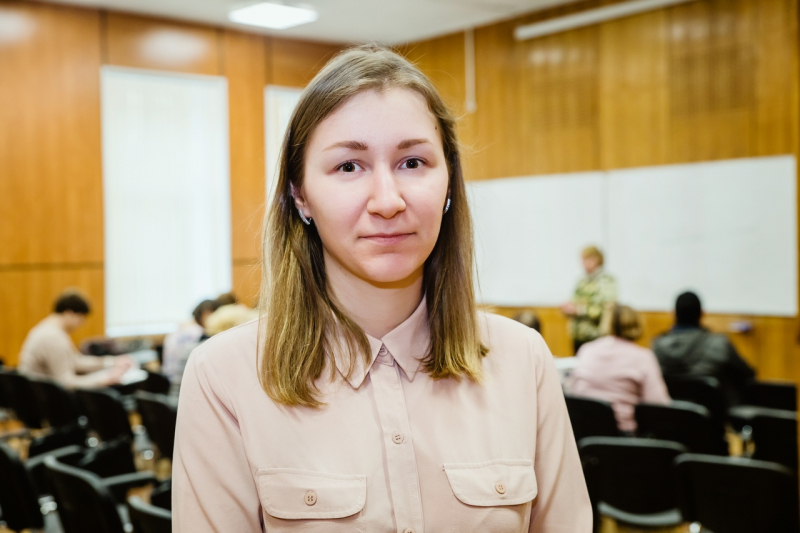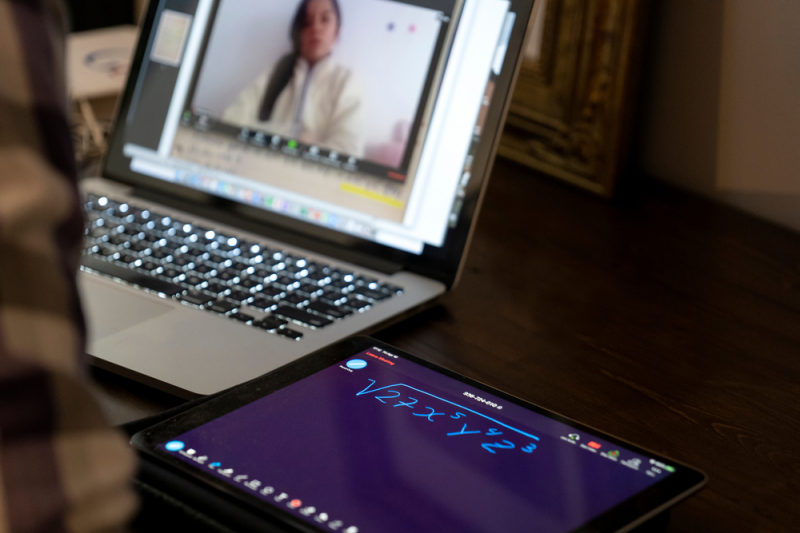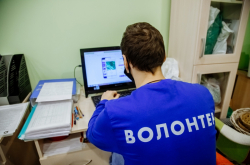A digital volunteer is a specialist who helps university lecturers and school teachers adapt their educational processes to the online mode.
20.35 University developed its digital volunteering program first and foremost for pedagogy majors to enable them to share their knowledge with teachers and help deploy online learning in schools.
“Initially, the program was created for teachers-to-be who, starting their internships at schools, would help local teachers to implement their subjects using modern technologies. But the Digital Volunteering intensive course also got traction among students of technical universities that have no connection to teaching. At the same time, these students possess good knowledge of the field of IT and a good command of digital tools. Therefore, having developed an understanding of the school education process, they can help teachers just as well,” shares Alyona Tarasova, a manager at ITMO University’s Student Initiatives Support Department.

Over the course of four days of training at 20.35 University, the students familiarized themselves with services for online communication and lectures, such as Discord and Zoom, and explored the key factors to consider when working with school students. What is more, the students learned to analyze school students’ data, their online footprint and behavior, as well as discovered how to apply Trello and Google Documents in pedagogy. Most importantly, they examine the process of gamifying study subjects. By way of the final exam, the students developed a history curriculum tailored for the transition to the online learning format.
The Student Initiatives Support Department offered the students to participate in a joint project.
“Right now we are developing a website with a single sign-on for ITMO University lecturers and school teachers. There, they could ask for help in adapting their subjects to the online format, and receive support from our digital volunteers. It’s still unclear what will happen after the quarantine. This academic year is already over, and everyone hopes that things will return to normal in September. But it isn’t very likely that we’ll be able to work and teach as we’ve done before, without any changes. In any case, the process has to be modified. This spring, many educational institutions weren’t ready to transition to the digital format, which is why it’s necessary to review how we present the learning material and optimize the learning process. Of course, face-to-face meetings with teachers and university lecturers will remain the same, but, perhaps, the quarantine will have some positive impact on the development of gamification of school curricula and online communication at universities,” adds Alyona Tarasova.

The speed and quality of the introduction of digital technologies is largely determined by educational institutions themselves. According to Alyona Tarasova, ITMO University’s Student Initiatives Support Department is already in negotiations with several St. Petersburg schools interested in getting the digital volunteers’ help.
ITMO.NEWS contacted some of the students who completed the course and became digital volunteers to find out about their experience.
Maria Shvedova, a student at the Faculty of Technological Management and Innovations

Before enrolling at ITMO, I lived in Moscow, which is why I had some experience of digital education during my school studies. I wanted to find out how all this would develop further, so when I learned about the contents of the digital volunteering course I realized that this was interesting to me.
I’d already been familiar with many skills we acquired during the course, such as working with Trello and Google services. But some of the technologies (for example, the Miro platform for the creation of mind maps) came as a huge and very important discovery. Firstly, I now often use these in my daily life, secondly, this can come in handy when working with different projects. I think that the tools we familiarized ourselves with are more useful for teachers and working with the class, but there are some that will make the lives of university lecturers and students easier, too.
Many of the topics connected to education are very interesting and important to me as I want to work in this field in the future. Ever since eighth grade, I’ve known that I’d like to work at my school. I think that education and its digitalization is an area where you can change and improve a lot of things; these are the fields that will develop and transform in a major way.
Galina Larionova, a student at the Faculty of Infocommunication Technologies

I decided to enroll in the course because firstly, communication systems pertain to my major, and secondly, this presented an opportunity to spend time in an interesting way while self-isolating. The aim of the training was to provide a guide to the technologies that can simplify digital interaction between students and teachers, and also explain how to use these services and platforms. This is a relevant topic for me because I myself am a student, but apart from that, my younger sister studies at a school which, like many other educational institutions, wasn’t prepared to transition to the online learning format.
Anna Shishlova, a student at the Faculty of Technological Management and Innovations

When I was offered to participate in the digital volunteering training, I straightaway decided to join. I glanced through the program and noticed topics such as sociology, application of various tools for the organization of processes and visualization, and gamification, the latter being what got me especially interested.
In my experience, gamification is a useful and interesting tool that transforms learning. The obtained knowledge can be also partially applied in teamwork on different projects, not just in the field of education. That said, we’re already getting lots of requests from other regions. We’re asked to help and explain to teachers how to modernize the educational process and tell them about the opportunities presented by Zoom or cloud solutions. Digitalization of education is a very important topic for me because I see just how much the learning process suffers if a teacher isn’t able to organize their work online.





